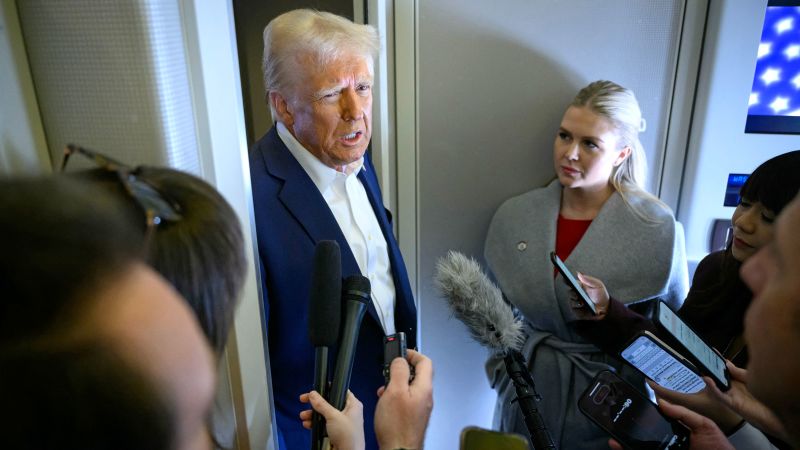 |
|
Donald Trump's recent statements regarding the Gaza Strip have ignited a firestorm of controversy, revealing a radical departure from decades of established US foreign policy. His proposal to relocate over a million Palestinians from Gaza to neighboring countries, specifically Jordan and Egypt, represents a dramatic shift away from the long-held principle of a two-state solution for Israelis and Palestinians. The casual manner in which he discussed 'cleaning out' the entire Gaza Strip, coupled with his conversations with Jordan's King Abdullah II and plans to speak with Egyptian President Abdel Fattah el-Sisi, underlines the gravity and potential implications of this unprecedented suggestion. The casual language used, “clean out that whole thing”, raises serious ethical and humanitarian concerns, particularly given the already precarious situation of Palestinians in Gaza, who have faced intense hardship following the recent conflict between Israel and Hamas. The destruction of homes, infrastructure, and the displacement of a significant portion of the population highlight the devastating impact of this ongoing conflict, making Trump's proposal even more controversial.
The international community, and particularly neighboring nations, have reacted with a mix of apprehension and outright rejection. Jordan, already hosting a substantial number of Palestinian refugees, has implicitly rejected the proposal through its state news agency’s omission of this detail from its reporting of Trump's call with King Abdullah II. El-Sisi’s previous statements condemning the idea of mass Palestinian displacement, warning against a domino effect that could lead to the displacement of West Bank Palestinians to Jordan, clearly signal Egypt's opposition to such a plan. These rejections highlight the impracticality and potential instability inherent in Trump’s proposal. The sheer logistics of such a large-scale relocation, coupled with the political and social ramifications, pose significant challenges that Trump's plan conspicuously fails to address. The lack of a detailed plan beyond resettlement and the use of terms like 'cleaning out' further underscores the superficiality of the proposal, failing to consider the cultural, social and psychological impacts on Palestinians.
Trump's actions extend beyond this controversial plan. His decision to lift Biden-era sanctions against Israeli settlers responsible for violent acts in the West Bank, a move praised by Israeli officials who advocate for re-establishing Jewish settlements in Gaza, shows a clear alignment with Israel's far-right factions. This policy shift not only deepens existing tensions in the region, but also further undermines any possibility of a peaceful resolution based on the two-state solution. The additional lifting of restrictions on providing 2,000-pound bombs to Israel, justified by Trump as fulfilling a previously delayed order, reveals a willingness to escalate the provision of military support to Israel, potentially exacerbating the existing conflict. This policy represents a significant shift from previous administrations, and it sends a clear signal about the potential shift in US support for Israel’s military actions in the area.
The timing of Trump's proposal is particularly significant. It comes at a moment of intense conflict and instability in the region, following the devastating war between Israel and Hamas. The proposal directly clashes with the international consensus on the need for a peaceful, negotiated solution that respects the rights of all parties involved. The notion that forcibly relocating a million Palestinians resolves the ongoing conflicts not only demonstrates a lack of sensitivity towards the people affected, but ignores the root causes of the conflict, including Israel's occupation and the ongoing blockade of Gaza. Such a plan is not a solution, but potentially a catalyst for escalating violence and resentment.
Trump's proposal also raises critical questions about the nature of US foreign policy under his leadership and its implications for the future of the Middle East. It underscores the deep divisions and differing views on how to address the complex and long-standing Israeli-Palestinian conflict. His approach, sharply contrasting with previous US administrations, raises concerns about the stability of the region and its potential to reignite violence on a much larger scale. The lack of any apparent concern for international law, humanitarian principles, or the potential consequences of such a radical shift in US policy leaves room for major uncertainty about the future of the region and the long-term consequences of this approach.
Source: Trump suggests his plan for Gaza Strip is to ‘clean out the whole thing’
